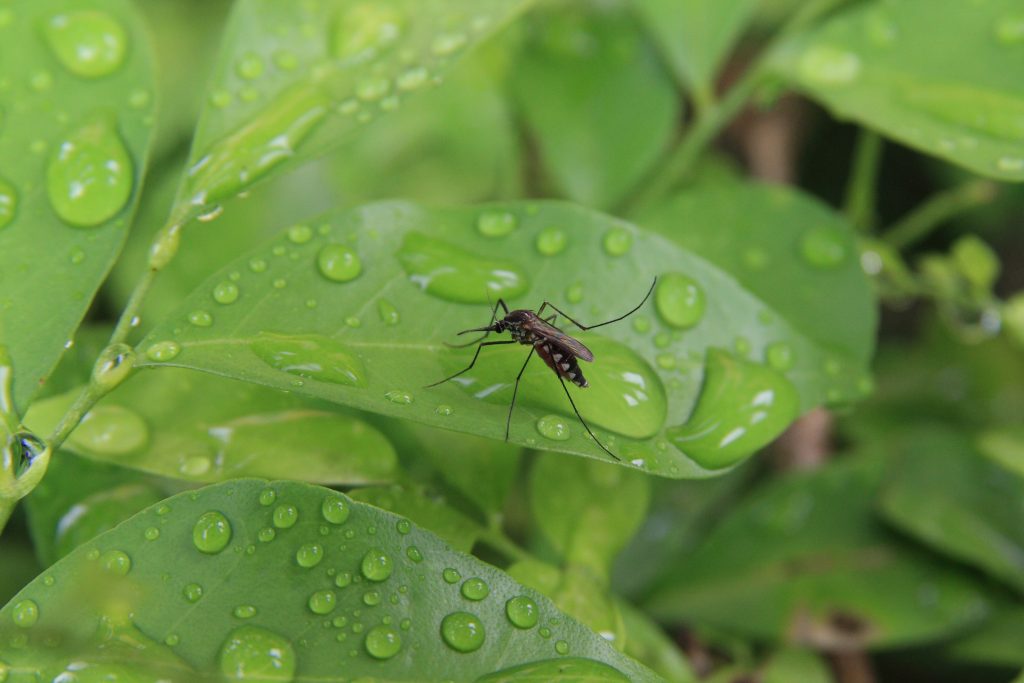
Buzz. Smack. Buzz. Smack. This little mosquito routine is irritatingly familiar to practically everyone who resides in Florida – especially during the year’s hottest months. In this blog post, we’ll familiarize you with Florida mosquitoes outside of the family barbecue. From uncovering their life cycle and preferred habitats to the reasoning behind their relentless pursuit of us humans, we’ll explore it all. We’ll also arm you with the best strategies to protect yourself from their stealthy attacks. Let’s dive in and explore the not-so-enchanting world of Florida mosquitoes.
What’s Attracting Mosquitoes to My Property in the First Place?

Mosquitoes are attracted to a combination of factors that provide ideal conditions for them:
- They are drawn to warm and humid climates, which provide perfect breeding conditions. The standing water found abundantly in Florida, from marshes and swamps to backyard containers, are ideal breeding grounds for mosquitoes.
- Mosquitoes are also attracted to carbon dioxide, which is exhaled by humans and other animals. They can detect carbon dioxide plumes from a considerable distance, leading them to potential hosts.
- Mosquitoes are attracted to certain scents and odors emitted by humans, such as lactic acid, uric acid, and ammonia, which are found in sweat.
- Dark clothing can also attract mosquitoes, which may seem strange, but here’s why: Dark colors- such as black or navy blue- create a sharp contrast against lighter backgrounds, making them more visible to mosquitoes.
- Mosquitoes are attracted to movement and heat – which means exercise or sweating may become more appealing targets.
- Certain perfumes, lotions, and fragrances can also attract mosquitoes.
It’s important to note that different species of mosquitoes may have specific preferences and behaviors when it comes to attraction.
The Mosquito Diet
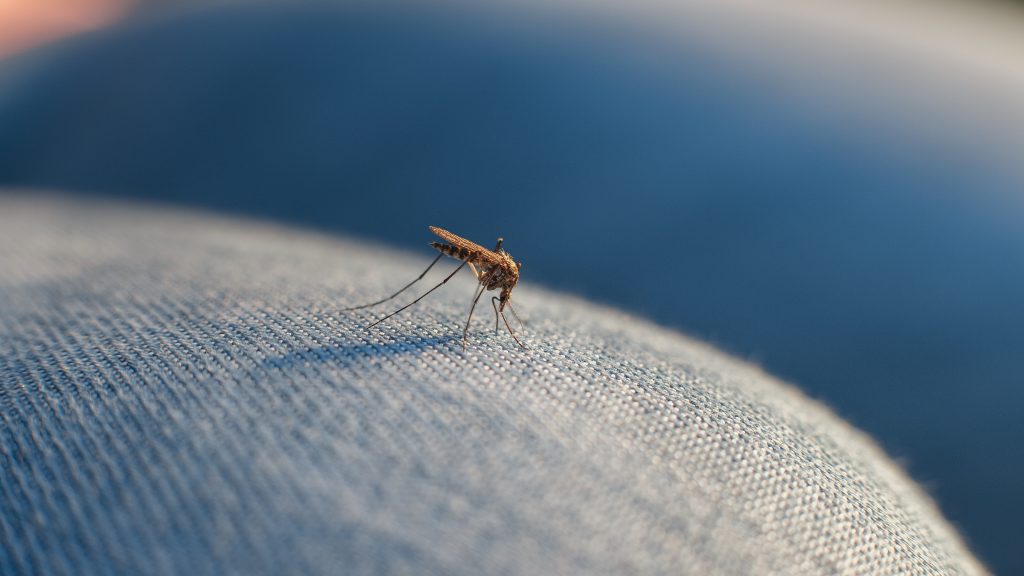
We know that mosquitoes like to suck blood, but that doesn’t make up the majority of their diet.
Female mosquitoes, the ones responsible for biting, primarily feed on the blood of animals, including humans. This blood meal is necessary so that female mosquitoes can extract nutrients for egg development. While female mosquitoes rely on blood meals for reproduction, they also obtain additional nutrients from plant sugars. After a blood meal, female mosquitoes will often seek out sources of nectar to supplement their diet.
In contrast, male mosquitoes primarily feed on nectar and other plant juices. They do not possess the necessary mouthparts to bite and extract blood as the females do. Instead, their diet consists of plant sugars, which provide them with energy for flight and other activities.
Female mosquitoes rely on blood meals for reproduction, they also obtain additional nutrients from plant sugars. After a blood meal, female mosquitoes will often seek out sources of nectar to supplement their diet.
Mosquitoes As a Diet
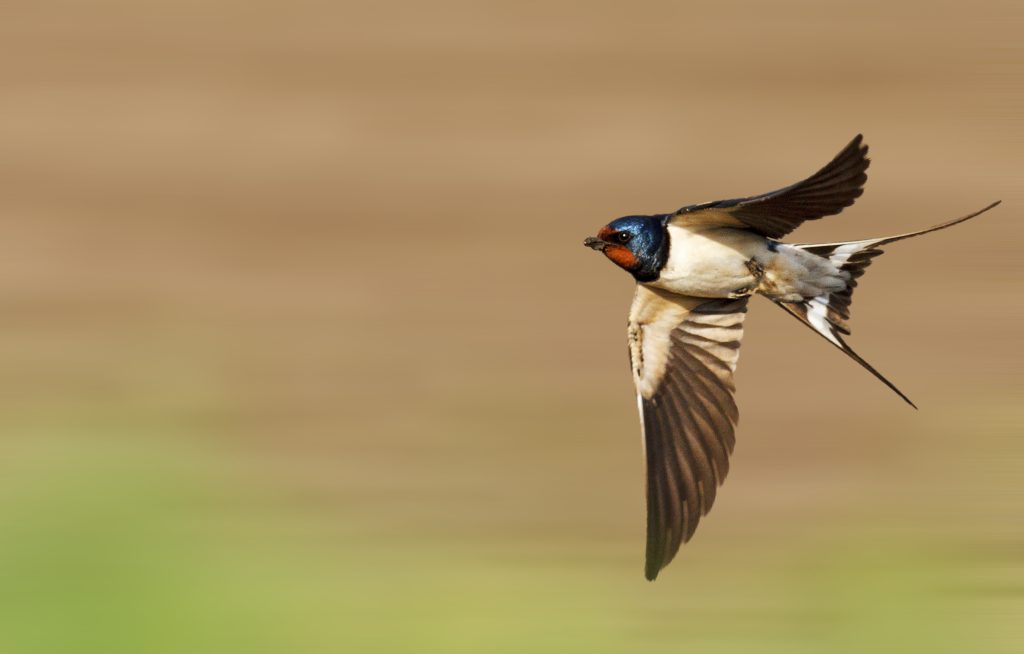
The thought of a mosquito confit is repulsive to people, but mosquitoes are actually a common part of the diet of many different creatures. Seven of the most common skeeter eaters include:
- Bats: Bats are voracious mosquito eaters. They use echolocation to locate and capture flying insects, including mosquitoes, during their nocturnal hunts.
- Birds: Many bird species include mosquitoes in their diet. Swallows, purple martins, nighthawks, and some species of songbirds are known to consume significant numbers of mosquitoes.
- Dragonflies and Damselflies: These predatory insects are excellent mosquito hunters. Both the adult and larval stages of dragonflies and damselflies feed on mosquitoes and other small insects found near water sources.
- Fish: Certain species of fish, like mosquito fish and some types of minnows, feed on mosquito larvae. These fish are often introduced into bodies of water to help control mosquito populations naturally.
- Frogs and Tadpoles: Many amphibians, such as frogs and their tadpoles, feed on mosquito larvae and adults. They play a vital role in keeping mosquito numbers in check, particularly in aquatic habitats.
- Predatory Insects: Various predatory insects, such as predaceouspredacious diving beetles, water bugs, and some species of ants, prey on mosquito larvae and pupae found in water bodies.
- Spiders: Certain spider species catch and consume mosquitoes that get caught in their webs. While spiders don’t actively hunt mosquitoes, they can be opportunistic feeders when mosquitoes become entangled in their webs.
Plants as Mosquito Control: Fact or Fiction?
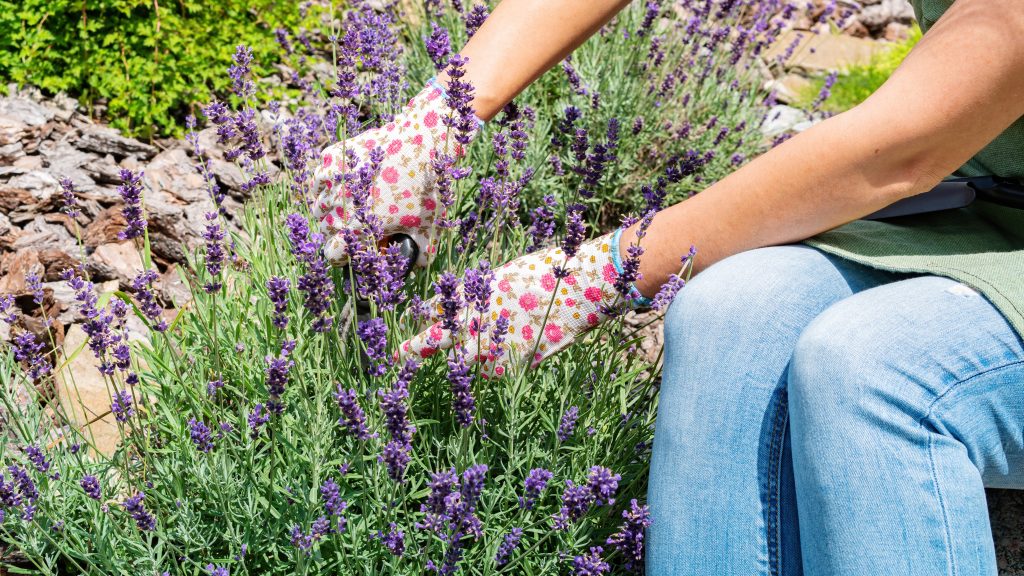
It may seem far-fetched, but there are in fact more than a handful of plants that can help to repel mosquitoes:
- Citronella: Citronella grass is a well-known plant that produces a strong scent that masks the attractants to mosquitoes. Its oil is commonly used in candles, torches, and insect repellents.
- Marigolds: Marigold flowers have a distinct scent that mosquitoes find unpleasant. Planting marigolds in your garden or placing them near windows can help repel mosquitoes.
- Lavender: Lavender not only has a lovely fragrance but also possesses mosquito-repelling properties. It is believed to deter mosquitoes and other insects due to its strong scent.
- Catnip: Catnip, a member of the mint family, contains a compound called nepetalactone, which is known to repel mosquitoes. It can be grown in gardens or used in the form of essential oil to keep mosquitoes at bay.
- Basil: The aroma of basil is known to repel mosquitoes. Growing basil plants in your garden or applying basil essential oil can help deter mosquitoes.
- Lemon Balm: Lemon balm, a member of the mint family, emits a lemony scent that mosquitoes dislike. Planting lemon balm or using its essential oil can act as a natural mosquito repellent.
It’s worth noting that while these plants can provide some level of mosquito deterrence, their effectiveness varies depending on factors such as the specific mosquito species, environmental conditions, and individual sensitivity. While these plants can help with deterrence, they are no substitute for professional mosquito control measures.
The Mosquito Life Cycle
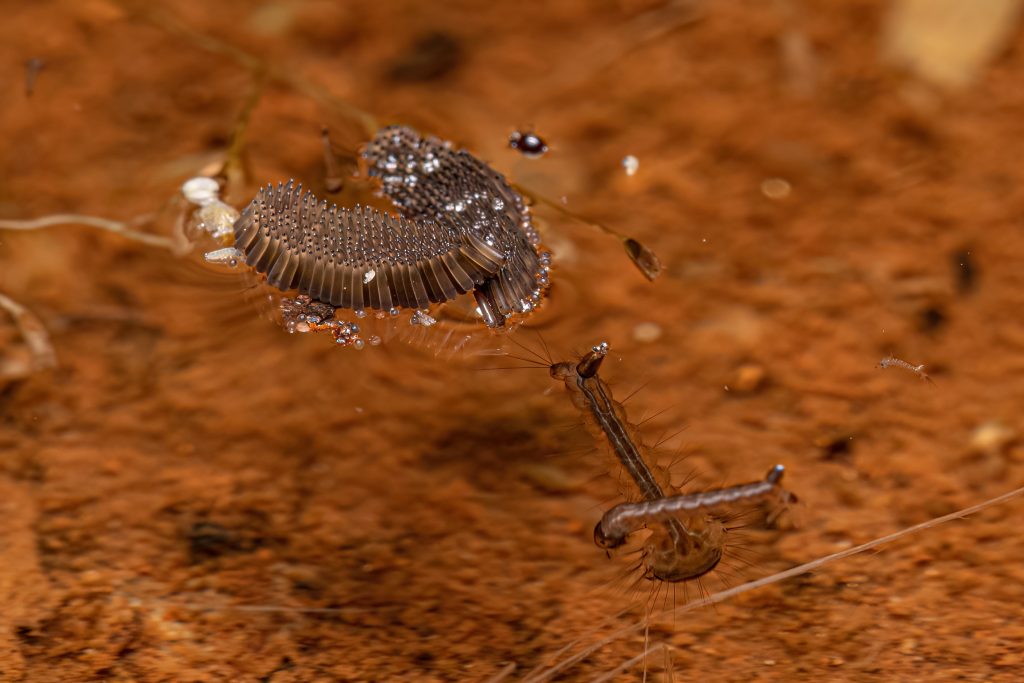
The mosquito life cycle consists of four distinct stages: egg, larva, pupa, and adult. This cycle is known as complete metamorphosis. Let’s explore each stage:
- Egg: Female mosquitoes lay their eggs in or near stagnant or slow-moving water. These eggs are typically laid in clusters or rafts that float on the water’s surface. Depending on the species, a female mosquito can lay anywhere from dozens to hundreds of eggs at a time.
- Larva: After a few days, the mosquito eggs hatch, and the larval stage begins. Mosquito larvae, also known as wrigglers, live in water and have a distinct worm-like appearance. They have a head and a segmented body with a breathing tube called a siphon. Larvae feed on microorganisms and organic matter present in the water, growing and molting several times as they progress through different instar stages.
- Pupa: Once the larval stage is complete, the mosquito enters the pupal stage. The pupa, also called a tumbler, has a comma-shaped body with respiratory trumpets. During this stage, the mosquito does not feed. Instead, it undergoes a remarkable transformation within the pupal case, where various internal changes occur, preparing the mosquito for adulthood.
- Adult: After a few days in the pupal stage, the mosquito emerges as an adult. Initially, its wings are soft and folded against its body, but they gradually expand and become fully functional. Male mosquitoes usually emerge first, followed by females. The adult mosquito rests on the water’s surface or nearby vegetation to allow its wings to dry and harden before taking flight. Female mosquitoes seek a blood meal to obtain the necessary proteins for egg development, while male mosquitoes primarily feed on plant nectar. Mating occurs, and the cycle repeats when the female finds a suitable location to lay her eggs, restarting the life cycle.
How Long Do Mosquitoes Live?
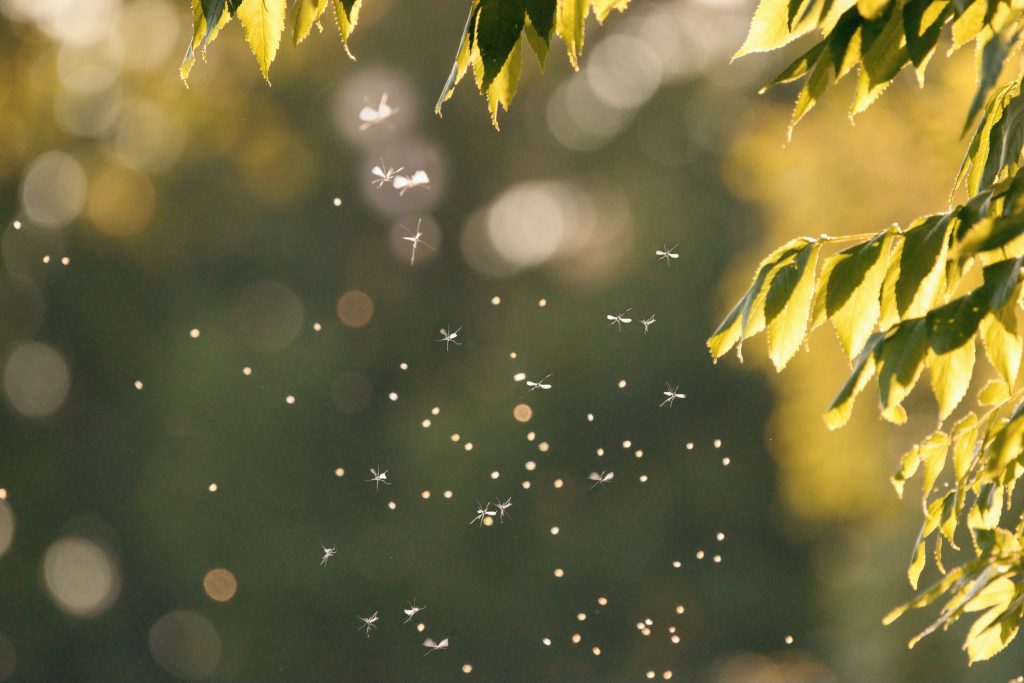
So at what point does the mosquito life cycle end? Mosquito lifespan can vary, but as a general rule male and female mosquitoes have somewhat distinct and predictable lengths of life:
- Female Mosquitoes: The lifespan of a female mosquito can vary, but it usually ranges from 2 to 8 weeks. However, some species, like the Aedes mosquitoes (found largely in South Florida), have been known to live for several months under optimal conditions.
- Male Mosquitoes: Male mosquitoes have a relatively shorter lifespan compared to females because they do not require a blood meal. On average, male mosquitoes live for about 1 to 2 weeks.
Are Certain People Really More Attractive to Mosquitoes?
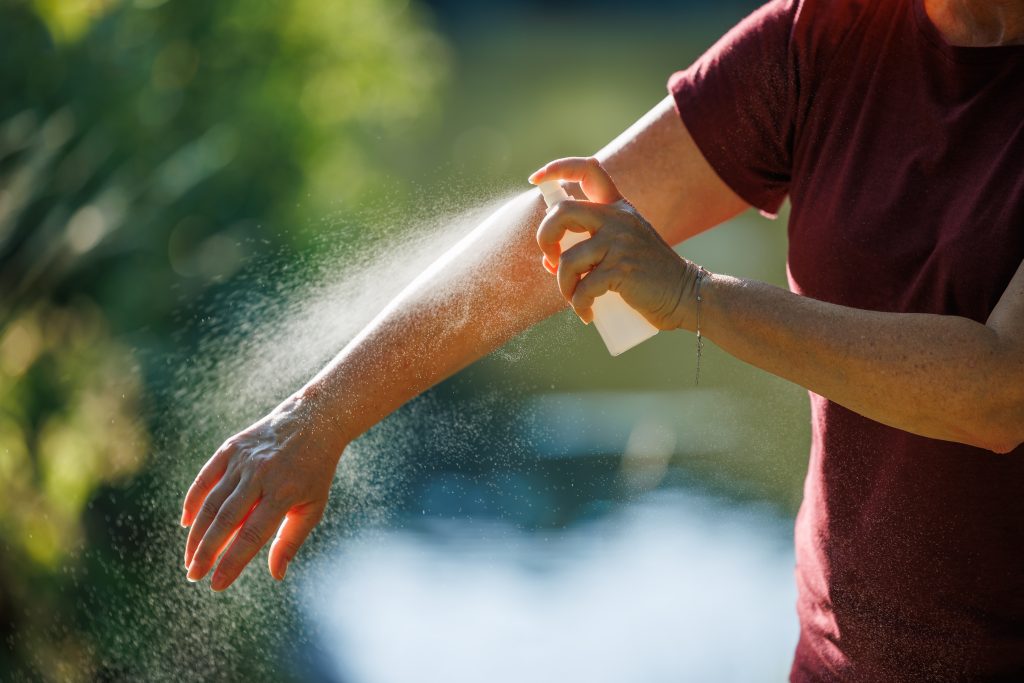
As it so happens, that paranoid thought that mosquitoes seek you out more than everyone else might just have some merit. According to Scientific American, a number of different factors can make you a mosquito magnet, including:
- Body Heat and Odor: Mosquitoes are attracted to the heat and odors emitted by our bodies. People with higher body temperatures and those who produce more sweat tend to be more appealing to mosquitoes.
- Carbon Dioxide: Mosquitoes are highly sensitive to carbon dioxide (CO2) exhaled by humans and animals. Individuals who produce more CO2 or exhale it in higher concentrations can be more attractive to mosquitoes.
- Skin Chemistry: Mosquitoes are believed to be attracted to certain chemicals present on our skin, such as lactic acid, uric acid, and ammonia. These compounds vary among individuals, and some people naturally produce more of these chemicals.
- Blood Type: Some studies suggest that mosquitoes may show a preference for certain blood types. For example, individuals with type O blood may be more attractive to mosquitoes compared to those with type A or type B blood.
- Pregnancy: Pregnant women tend to be more attractive to mosquitoes, likely due to the increased body heat and exhaled carbon dioxide associated with pregnancy.
Do Mosquitoes Play a Role in Ecosystems?

A common mantra for the mosquito-haters of the world (which is most of us) is that mosquitoes, unlike almost every other living organism, truly do nothing to positively contribute to the ecosystems that they inhabit. As it so happens, this plainly untrue. Mosquitoes contribute a number of positive things to their ecosystems, including:
- Food Source: Mosquitoes serve as a vital food source for many organisms. They are a primary source of nutrition for numerous bird species, bats, amphibians, and insects. These predators help maintain the balance within ecosystems.
- Larval Habitat: Mosquito larvae, also known as wrigglers, inhabit aquatic environments, such as ponds, lakes, and wetlands. They play a role in nutrient cycling by consuming organic matter and microorganisms, helping to break them down and recycle nutrients within these habitats.
- Pollinators: Some mosquito species, particularly males, act as pollinators. They feed on plant nectar and inadvertently transfer pollen from one flower to another, contributing to the reproduction and genetic diversity of various plant species.
- Water Quality Indicator: The presence or abundance of certain mosquito species in aquatic habitats can serve as an indicator of water quality. Certain species are more tolerant of pollution and stagnant water, while others are sensitive to environmental changes. Monitoring mosquito populations can help identify potential ecological disturbances and provide insights into ecosystem health.
- Research and Scientific Studies: Mosquitoes have been extensively studied due to their role as disease vectors. Research on mosquito behavior, genetics, and immune responses has provided valuable insights into understanding diseases and developing strategies for disease prevention and control.
So yes, despite the rumors, mosquitoes do indeed have a purpose.
An Overview of the Threats Mosquitoes Pose

Despite the positive contributions that mosquitoes provide, they are well-known disease spreaders – and that is just one side of the threats that they pose.
- Disease Transmission: Mosquitoes are known to transmit numerous diseases to humans and animals, including malaria, dengue fever, Zika virus, chikungunya, West Nile virus, yellow fever, and various forms of encephalitis. These diseases can range from mild to severe, and in some cases, they can be life-threatening.
- Public Health Impact: Mosquito-borne diseases have a significant impact on public health globally. They can cause widespread outbreaks, particularly in regions where mosquito populations are abundant and disease prevention measures are inadequate. These outbreaks can result in high rates of illness, hospitalizations, and even deaths, posing a considerable burden on healthcare systems and communities.
- Economic Impact: Mosquito-borne diseases can have a substantial economic impact on affected regions. Outbreaks can lead to increased healthcare costs, loss of productivity due to illness or death, reduced tourism, and disruption of trade and commerce. Controlling and managing mosquito populations and associated diseases require significant resources and investments.
- Allergic Reactions and Discomfort: Mosquito bites can cause allergic reactions in some individuals, resulting in itching, swelling, and discomfort. Continuous scratching of mosquito bites can lead to skin infections. The persistent presence of mosquitoes can also disrupt outdoor activities and affect the quality of life, particularly in areas with high mosquito populations.
- Veterinary Concerns: Mosquitoes can transmit diseases to animals, including livestock, pets, and wildlife. For example, certain mosquito-borne diseases like heartworm can pose a significant threat to dogs and other animals, leading to severe health problems or even death if left untreated.
- Environmental Impact: While mosquitoes have their place in the ecosystem as discussed earlier, certain invasive mosquito species, when introduced to new habitats, can disrupt native ecosystems and harm native species. They can outcompete or prey upon indigenous mosquito species or have detrimental effects on other organisms they interact with.
Prevention and Protection: How to Secure Your Home From Mosquito Threats
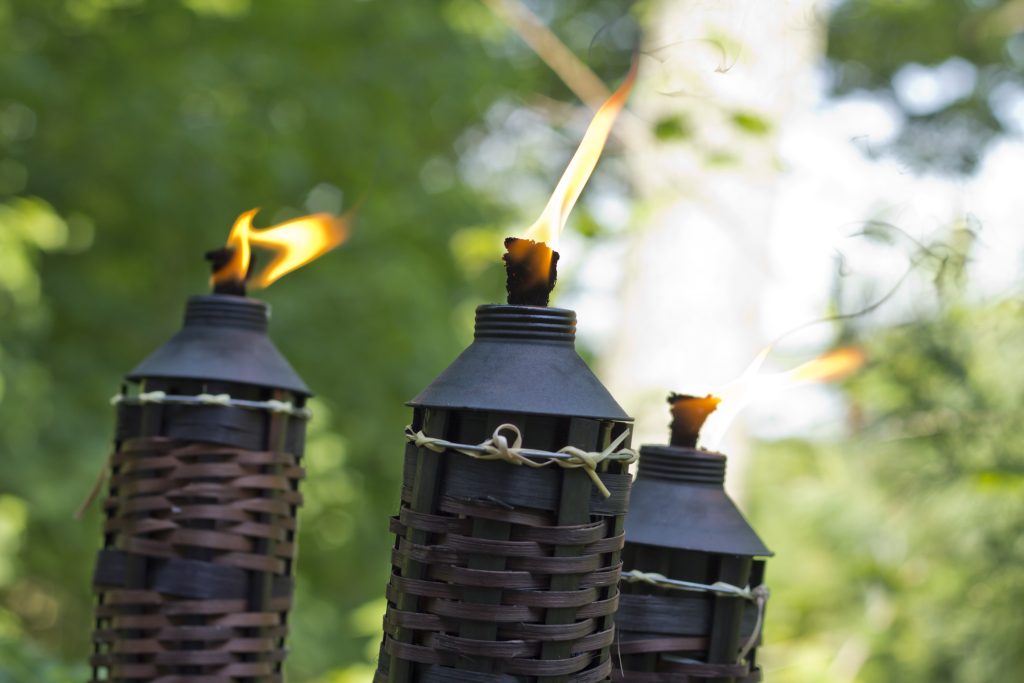
Now that we know a ton about mosquitoes, you’re probably wondering what you can do to keep them away from your property. There are a number of measures that you can take to decrease your chances of mosquito trouble:
Eliminate Standing Water: Mosquitoes require stagnant water to breed. Regularly inspect your property for any sources of standing water, such as buckets, flowerpots, bird baths, clogged gutters, or containers. Empty or remove them, and ensure that water does not accumulate in outdoor items.
Maintain Pools and Ponds: If you have a swimming pool, ensure it is properly maintained and chlorinated. For decorative ponds or water features, consider adding mosquito larvae-eating fish, like the aforementioned mosquito fish, to keep mosquito populations in check.
Clean Gutters and Drains: Clogged gutters and drains can accumulate water and become mosquito breeding grounds. Regularly clean and maintain gutters and ensure proper drainage to prevent water buildup.
Secure Doors and Windows: Install screens on doors and windows to prevent mosquitoes from entering your home. Ensure that screens are in good condition and free of holes or tears.
Use Mosquito Repellents: Apply mosquito repellents on exposed skin when spending time outdoors, especially during peak mosquito activity times. Look for repellents containing ingredients like DEET, picaridin, or oil of lemon eucalyptus, which are effective against mosquitoes.
Wear Protective Clothing: When in mosquito-prone areas, cover your skin by wearing long-sleeved shirts, long pants, and socks to minimize exposed areas where mosquitoes can bite.
Use Outdoor Fans: Mosquitoes are weak fliers and have difficulty flying in the presence of strong winds. Consider using outdoor fans on patios or decks to create airflow and deter mosquitoes.
Consider Mosquito Control Devices: You may also utilize mosquito control devices such as mosquito traps, bug zappers, or citronella candles to help reduce mosquito populations in specific areas.
Seek Professional Help: Even if you take every preventative measure you can, mosquitoes may still swarm your property. If this is the situation that you are in, experienced mosquito control services can help.
Having mosquito problems right now? Reach out to Nozzle Nolen here or call 800.226.6536 to book a mosquito defense appointment today!




